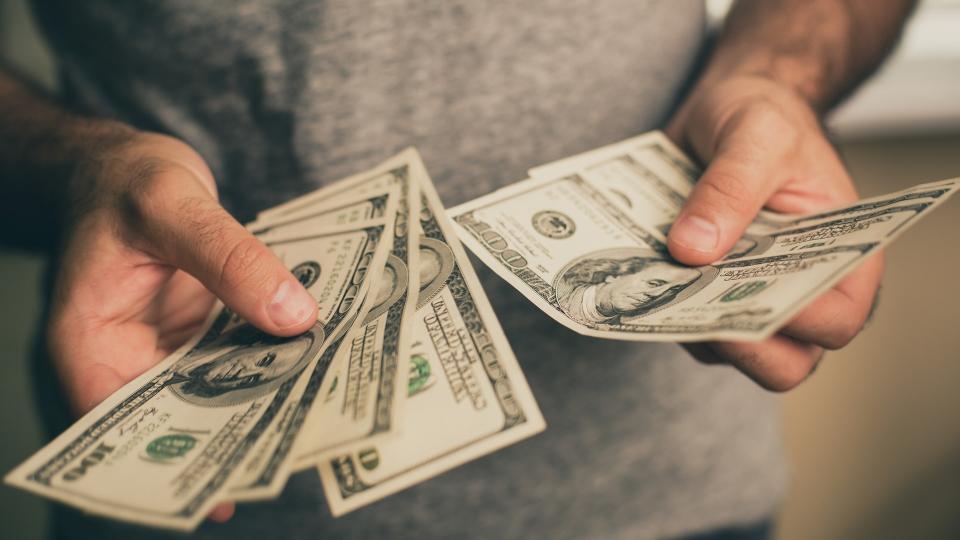Financial Expert Warns You’re Missing Out on Wealth by Hoarding Money — Here’s How

While inflation is cooling down — standing at 3.7% in September, according to the Oct. 12 Consumer Price Index (CPI) — it is still a far cry from the Federal Reserve’s 2% target goal. In turn, the Fed seems poised to raise rates at least once more this year — which would continue to put pressure on Americans’ wallets.
Grant Cardone Says Passive Income Is the Key To Building Wealth: Here’s His No. 1 Way To Get It
Find: How To Get Cash Back on Your Everyday Purchases
Against this backdrop, it’s no wonder that some may find the “cash is king” mantra attractive. Yet, experts warn that you could be missing out on wealth by hoarding money.
Why Does It Hinder Building Wealth?
If all of someone’s assets are held in cash, they forgo the wealth-building potential of stocks, stock mutual funds and ETFs (exchange-traded funds), as well as other equity assets, said Dr. Barbara O’Neill, CFP, AFC, CRPC, at RetireGuide.com and owner and CEO of Money Talk.
“It is simply an opportunity cost question; i.e., losing the opportunity to earn higher returns elsewhere,” she said in her statement to GOBankingRates.
O’Neill added that money grows slower in cash assets than it does in equities. In turn, this means that someone will have much less money saved when they retire if they hoard cash for 20 to 40 working years, instead of maintaining a diversified portfolio.
“Cash assets also generally lose purchasing power due to the effects of taxes and inflation. The after-tax return earned on cash assets is often less than the inflation rate, which means that savings dollars will buy less,” she added.
Taxes on Generational Wealth Just Changed: Here’s What You Should Know
In addition, by never putting any money in tax-deferred retirement savings plans, Americans forgo the wealth-building advantage of decades of tax-deferred compound interest.
“Interest on their savings, by contrast, is taxable in the year that it is earned,” she said.
What Can You Do Instead?
According to O’Neill, the simplest approach is to put the money into a savings account, and ideally, a high-yield savings account. But there are a few more options, as well.
High-Yield Savings Accounts
“High-yield savings accounts offer higher interest rates than regular accounts. You can deposit and withdraw money with ease, providing flexibility,” she said, adding that these are especially beneficial when interest rates are low.
“While they don’t offer high returns like investments, they’re safe and you won’t lose your money,” she said.
Certificates of Deposit
A CD is a savings account offered by banks and credit unions to their customers, which typically offers a relatively high rate of interest compared to traditional savings vehicles, explained O’Neill. Yet, she added that these entail a lockup period during which an investor is unable to access or trade their money.
Money Market Accounts
These savings accounts allow you to make withdrawals with a debit card or write checks.
“There are key differences between a money market account and other types of savings accounts, including that a money market account offers a higher interest rate,” she said.
In addition, these are insured up to $250,000 per owner through the Federal Deposit Insurance Corporation (FDIC), which means your investment is protected in the unlikely event that a bank closes or fails. Also, if you open a joint account with someone else, the account will be insured up to $500,000, she said.
Treasury Bonds
These bonds are long-term debt securities issued and backed by the U.S. government.
“When you buy a Treasury bond, you are loaning money to the federal government. In exchange, you receive interest payments every six months until the bond matures — typically after 10 or more years — the debt is repaid in full,” said O’Neill.
Since these are backed by the federal government, they are considered risk-free investments.
Are There Any Instances When ‘Hoarding Cash’ Is Judicious?
According to O’Neill, if someone has a very near-term financial goal such as a wedding or an upcoming trip, having that money is liquid cash assets is appropriate.
“These days, with 5% yields on online bank savings and money market accounts, this cash can even earn a decent return until it is needed,” added O’Neill.
More From GOBankingRates
This article originally appeared on GOBankingRates.com: Financial Expert Warns You’re Missing Out on Wealth by Hoarding Money — Here’s How

 Yahoo Finance
Yahoo Finance 